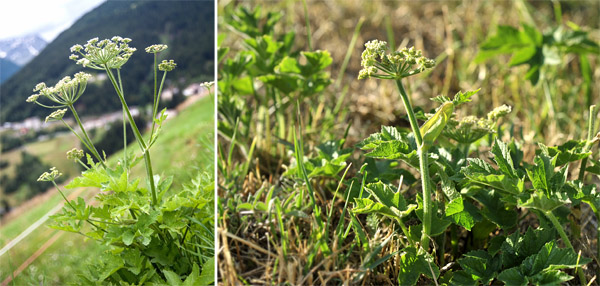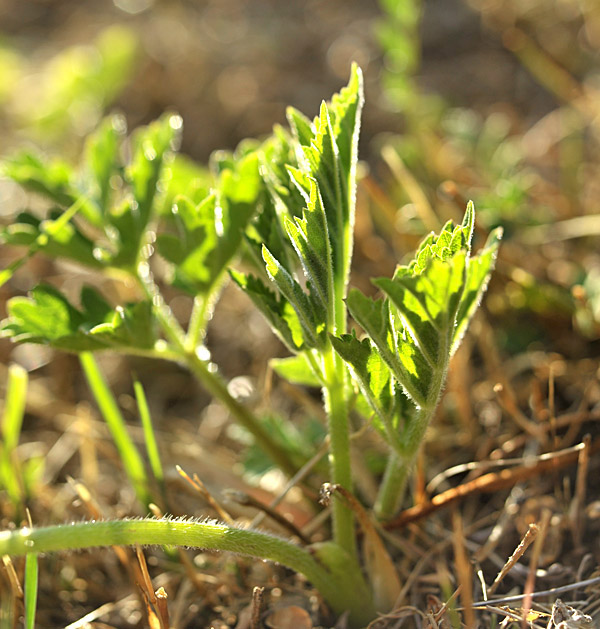Heracleum shondylium is a perennial herbaceous plant, very common, known as hogweed, common hogweed or cow parsnip.
Hogweed is probably one of these plants you don’t think of as being edible. I stepped into it only last year and since then it’s in my top-10 list of the best wild edibles. Young hogweed shoots taste vaguely like celery, scents like carrots, but has a distinct and delicate flavour, unique and difficult to decribe.

Where you can find it?

Distribution: Eurasian (and North Africa)
Habitat: very common in meadows and forest clearings, especially in mountain areas up to 8,000 ft (2500 m) of altitude. It prefers moist, nitrogen-rich soils.
When to harvest?
In springtime and summer (shoots grow again and again if you cut them). The best are young leaves not fully unfurled.

Caution! Common hogweed is slightly phototoxic for the thin-skinned, especially children. But so are carrot leaves, did you know? If you have a very sensitive skin and want to be on the safe side: wear gloves.
Make sure you can identify it poperly, as it belongs to the umbelifer family, and has some toxic lookalikes. First of all the giant hogweed (Heracleum mantegazzianum). This is not edible and is aggressively phototoxic. It grows much bigger (up to 4 metres) and has a purple blotched bristly stem.
How do I use it?
Cooked leaves: boiled or sauteed with oil (approx 10 min), they are an excellent substitute for spinach, with a slight taste of carrot. You can serve it as a side-dish, like spinach, or as filling in savoury tarts and ravioli. Hogweed is rich in Calcium, Phosphorus (more than Dandelion) and Magnesium. The roots and the leaves are aphrodisiac, digestive, mildly expectorant and sedative.
Immature flower heads: they come neatly wrapped in papery bracts and are an excellent substitute for steamed broccoli.
Fruits (diachene): Used as a spice (halfway from cardamon to ginger) for cakes, savory dishes, sauces, aromatised wines.
Check out my Vegetable Broth Powder DIY, Crustless Common Hogweed Quiches
Storage:
Leaves frozen (lightly cooked). Fruits dried
Propagation:
A very easily grown plant, succeeding in any ordinary garden soil. Grows well in full sun or partial shade. A good bee plant. Seed – sow mid to late spring or early autumn in situ. Rhizome division in autumn or early spring.
Follow us!
Share this!